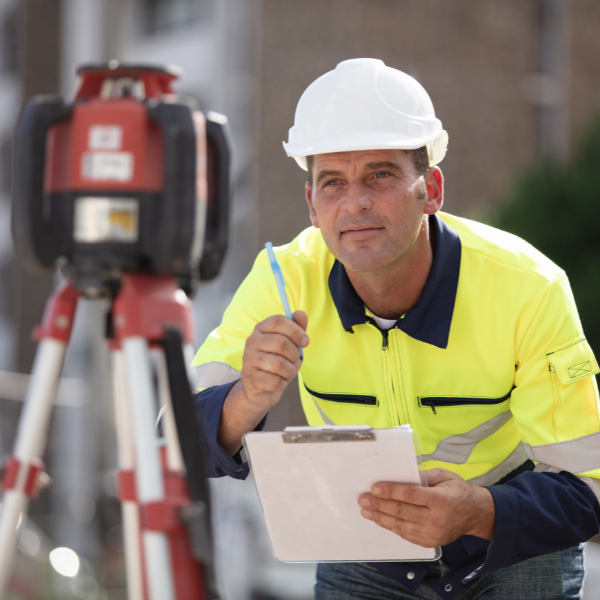IEMA members are getting recognised through our specialist registers

The IEMA Register of Environmental Auditors is open to both internal and external auditors working within the areas of environmental auditing and environmental management systems (EMS) auditing.
You can apply to one of the general environmental auditor levels as an Associate, Registered or Registered Principle Environmental Auditors, or to one of the EMS Auditor Levels as an EMS Auditor or Lead EMS Auditor.
Registered Associate Environmental Auditors are typically active 'trainee' environmental auditors who are expected to have, as a minimum, a basic knowledge of environmental auditing.
Training:
Experience:
Background Experience:
Environmental Auditors are expected to have a good appreciation of a range of environmental issues and environmental auditing techniques and to be competent environmental auditors in the areas in which they operate. However, their experience may be confined to a limited number of environmental audit types and sectors. Registered Environmental Auditors will typically be regular and active members of environmental audit teams.
Training:
Experience:
Background Experience:
Principal Environmental Auditors are expected to have a wealth of environmental auditing expertise and will typically lead/manage environmental audit teams and liaise with senior management on a regular basis. They are expected to be able to take considerably greater responsibilities than registered Environmental Auditors and to have an excellent appreciation of the wide range of issues pertaining to environmental auditing.
Training:
Experience:
Background Experience:
EMS Auditors are expected to have a good appreciation of the EMS audit process and be qualified to be a member of an audit team to undertake specific duties that they have expertise in.
Training:
For those individuals applying to the EMS or Lead EMS Auditor levels, the requirement for formal training can only be waived through the completion of accredited exams or relevant professional qualifications e.g. IRCA Lead Assessor.
Experience:
Lead EMS Auditors are expected to have a thorough appreciation of all aspects of the EMS audit process and be qualified to lead an audit team.
Training:
For those individuals applying to the EMS or Lead EMS Auditor levels, the requirement for formal training can only be waived through the completion of accredited exams or relevant professional qualifications e.g. IRCA Lead Assessor.
Experience:
Applicants are required to have appropriate background work experience which contributes to the development of skills and understanding in some or all of the following:
The length of work experience is reduced according to the completion of post-secondary education

The Register is an internationally recognised environmental auditor accreditation scheme, dedicated to raising the professional competence in the environmental auditing field. By becoming an IEMA Registered Auditor you will:
To apply, please read the Environmental Auditor Information Pack, and complete and return the Environmental Auditor Application Form form to us.
If you are applying to one of the general environmental auditor levels on the register, this is assessed by IEMA using a points system. Points are awarded based on academic qualifications, membership of professional bodies, training and experience. For each registration level a different points threshold must be reached, and you have to demonstrate skills in environmental auditing appropriate to the level for which you apply. All applicants to the scheme are required to pass a rigorous assessment process involving a combination of references, external verification checks (see below), and for the higher levels, successful completion of an oral examination (also, see below).
For each application received IEMA contacts the verification sources provided in the application to check that the work was undertaken, for the correct length of time and was of an acceptable standard. IEMA is not interested in the findings of the audit or any confidential information.
The final stage of the Principal Environmental Auditor application process is to undertake an oral examination with two Principal Environmental Auditor Examiners. The examination is face to face and lasts approximately 45 mins.

The EIA Practitioners register allows individuals and their employers to demonstrate to interested parties and the public that they are adequately qualified and experienced to deal with Environmental Impact Assessment issues.
The purpose of the Register is to promote the effective practice of EIA by setting quality standards based on the knowledge and experience of those involved in the process. Registration provides an efficient and effective means by which developers, consultancies and regulatory agencies can demonstrate to interested parties that their individual staff are adequately qualified, trained and experienced. The Register will establish a career path for those involved in the EIA process.
You are likely to be either a 'trainee' EIA assessor or a specialist contributing to EIA projects. Alternatively you could be a senior member of staff in an organisation who cannot meet the currently-practising work experience requirements. As a minimum you will be expected to have a basic understanding of EIA methods, environmental impacts and EIA legislation.
You will be actively involved in EIA on a day-to-day basis either as an EIA 'generalist' or specialist providing impact assessment studies. As a minimum you will be expected to have a good appreciation of a range of environmental impacts and assessment techniques, be competent in the areas in which you operate, and have some EIA project management experience.
You will be a very experienced and senior EIA professional with a wealth of EIA expertise and experience, an excellent appreciation of a wide range of impact assessments and the issues pertaining to EIA. You will also be expected to have led, managed and directed large EIA teams and have experience of liasing with senior.

The register allows individuals and their employers to demonstrate to interested parties and the public that they are adequately qualified and experienced to deal with environmental impact assessment issues. As a registered EIA Practitioner on the scheme, you will:
To apply, please read the EIA Practitioner Application Pack, and complete and return the EIA Practitioner Application Form form to us.
CPD (Continuing Professional Development) is a key component of being an IEMA registered EIA Practitioner with a requirement for all registered EIA Practitioners to submit annual evidence of CPD.

Organisations who are required to comply with ESOS can appoint a Lead Assessor who is a member of an approved professional body register to conduct an ESOS assessment as a way of complying. The IEMA ESOS Lead Assessors register enables individuals to demonstrate professional competence in energy assessments to their organisation, clients and colleagues.
Organisations who are required to comply with ESOS can appoint a Lead Assessor who is a member of an approved professional body register to conduct an ESOS assessment as a way of complying. The IEMA ESOS Lead Assessors register enables individuals to demonstrate professional competence in energy assessments to their organisation, clients and colleagues. For wider information on ESOS you can visit the government’s ESOS webpage here: Energy Savings Opportunity Scheme (ESOS) - GOV.UK (www.gov.uk)
To be eligible to apply for IEMA’s ESOS Lead Assessor Register members need to be at least ONE of the following:
Along with the above, members will also need to demonstrate the following:
Applications to the ESOS Lead Assessor register are assessed by an External Panel using the competencies in PAS 51215:2014 and evidenced through relevant training and experience and membership of professional bodies, external verification checks (see below) and successful completion of a one-day training workshop. The timeframe for approval under our external panel assessment process can vary, however, it will usually take around 3 weeks. Please note that candidates can only re-apply for ESOS Lead Assessor status twice within any 12-month period.
For each application received, IEMA contacts the verification sources provided (minimum of three) to check that the work as described was undertaken, for the stated length of time and was of an acceptable standard. IEMA is not interested in the findings of audits or any confidential information.
This one day workshop is a mandatory part of the application process to join IEMA’s Lead Assessor register. It is also available to attend as a stand-alone workshop if you can demonstrate that you have the correct level of knowledge and experience and that you are actively working towards meeting IEMA’s membership eligibility criteria to become an ESOS Lead Assessor:
Please note that these workshops are run subject to demand. For more information about workshop dates and prices please click here.